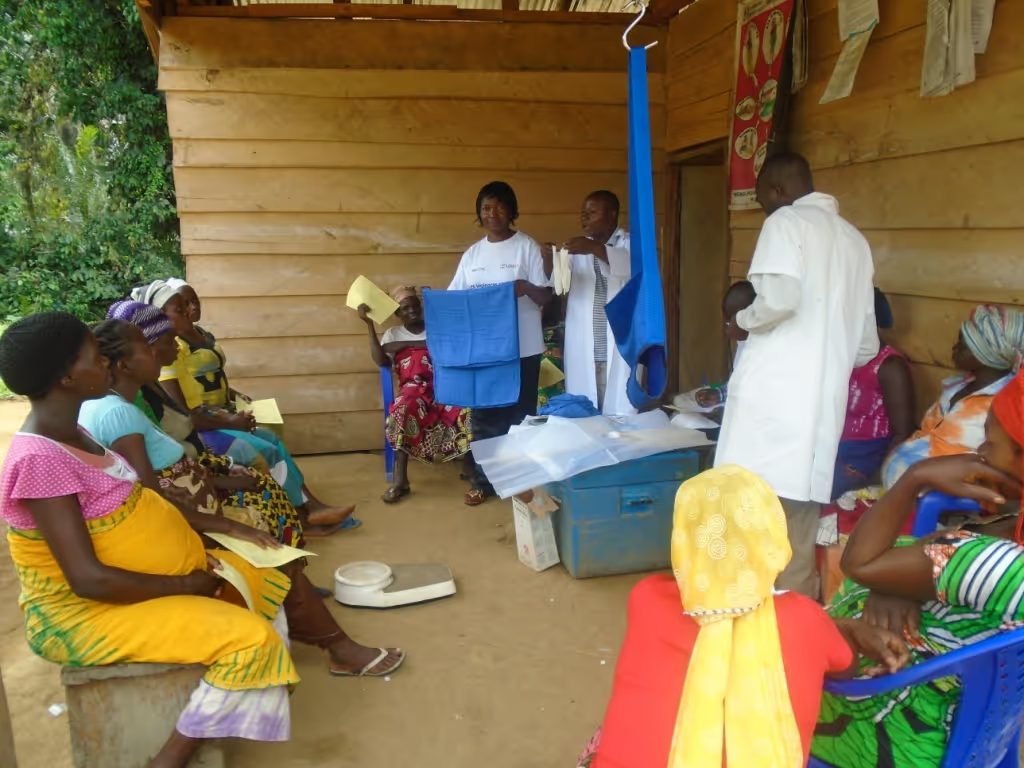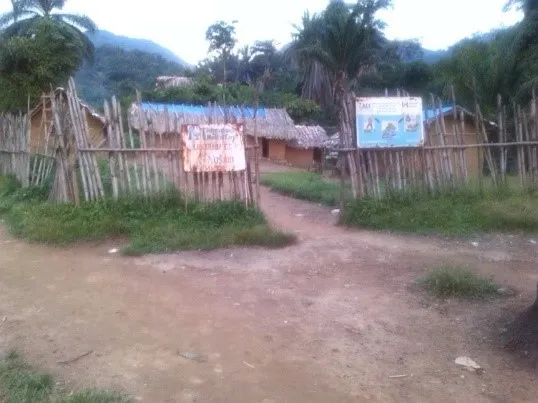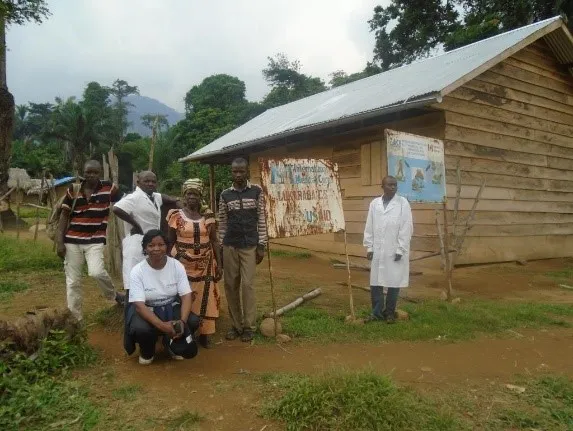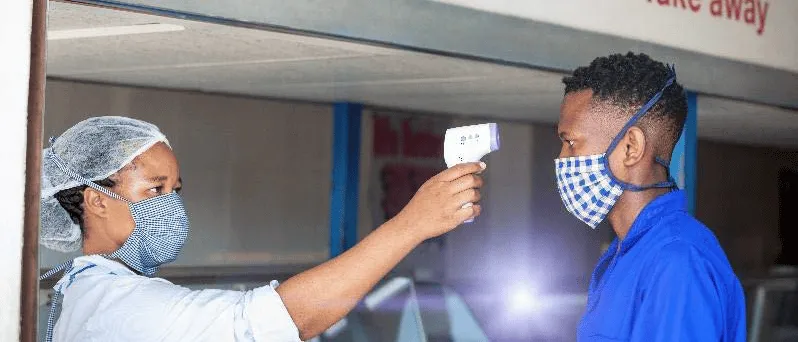Mobilising a community in need for improved primary and reproductive healthcare services in the Democratic Republic of Congo

In the East of the Democratic Republic of Congo - one of the world’s worst humanitarian crisis zones - more women are dying from complications around pregnancy and childbirth than ever before. Although the decade long conflict that devastated the country ended years ago, the region is still struggling to recover and reproductive services are in urgent need of improvement.
Most qualified medical teams have abandoned health facilities to escape to other areas where they are relatively safe and remaining health staff lack both the motivation and vital training they need to support their communities.
A community in need
Lukaraba, a rural community in South Kivu, is one such example.
Lukaraba is home to more than 10,500 people and is inaccessible by car, with the only way in a 15 kilometre track passable only on foot. Heavily affected by the ongoing crisis and abandoned to fend for itself, the community has been left without any proper health facilities or reproductive health care services. A lone health centre was constructed by the community using local materials, but it offered little protection against cold and rain and quickly became decrepit.
Because of this lack of safe reproductive care, International Medical Corps, along with the Centre for Disease Control (CDC), the University Research Co., LLC (URC) and the United Nations Fund for Population Assistance (UNFPA) were awarded funding to carry out a research project to analyse the current situation and develop and implement a training package to improve the quality of reproductive care and measure the impact.
With support from this research project in Lukaraba, the community was able to mobilise and construct a new health centre. Built with durable materials provided by International Medical Corps, the new centre now provides primary healthcare and reproductive health services to thousands of people and allows mothers to give birth in a safe environment.In the East of the Democratic Republic of Congo - one of the world’s worst humanitarian crisis zones - more women are dying from complications around pregnancy and childbirth than ever before. Although the decade long conflict that devastated the country ended years ago, the region is still struggling to recover and reproductive services are in urgent need of improvement.
Most qualified medical teams have abandoned health facilities to escape to other areas where they are relatively safe and remaining health staff lack both the motivation and vital training they need to support their communities.
A community in need
Lukaraba, a rural community in South Kivu, is one such example.
Lukaraba is home to more than 10,500 people and is inaccessible by car, with the only way in a 15 kilometre track passable only on foot. Heavily affected by the ongoing crisis and abandoned to fend for itself, the community has been left without any proper health facilities or reproductive health care services. A lone health centre was constructed by the community using local materials, but it offered little protection against cold and rain and quickly became decrepit.
Because of this lack of safe reproductive care, International Medical Corps, along with the Centre for Disease Control (CDC), the University Research Co., LLC (URC) and the United Nations Fund for Population Assistance (UNFPA) were awarded funding to carry out a research project to analyse the current situation and develop and implement a training package to improve the quality of reproductive care and measure the impact.
With support from this research project in Lukaraba, the community was able to mobilise and construct a new health centre. Built with durable materials provided by International Medical Corps, the new centre now provides primary healthcare and reproductive health services to thousands of people and allows mothers to give birth in a safe environment.


Bora, a 24-year-old mother who lives in Lukaraba, said: “Before we used to deliver our babies in a hut and the conditions were very poor.
“We are so grateful for the support from International Medical Corps that allowed us to build this centre. I delivered my baby in good conditions and I was given a kit that had everything I needed to care for my child.”
The next steps
With complemetary funding, the International Medical Corps is planning to continue supporting the healthcare centre by providing crucial equipment including observation and delivery beds, as well as training health staff to ensure best possible care in Lukaraba community.
By: Joel Ambebila, DRC Programme Director at International Medical Corps
Stay updated
Sign up for our newsletter to receive regular updates on resources, news, and insights like this. Don’t miss out on important information that can help you stay informed and engaged.
Explore Elrha
Learn more about our mission, the organisations we support, and the resources we provide to drive research and innovation in humanitarian response.


